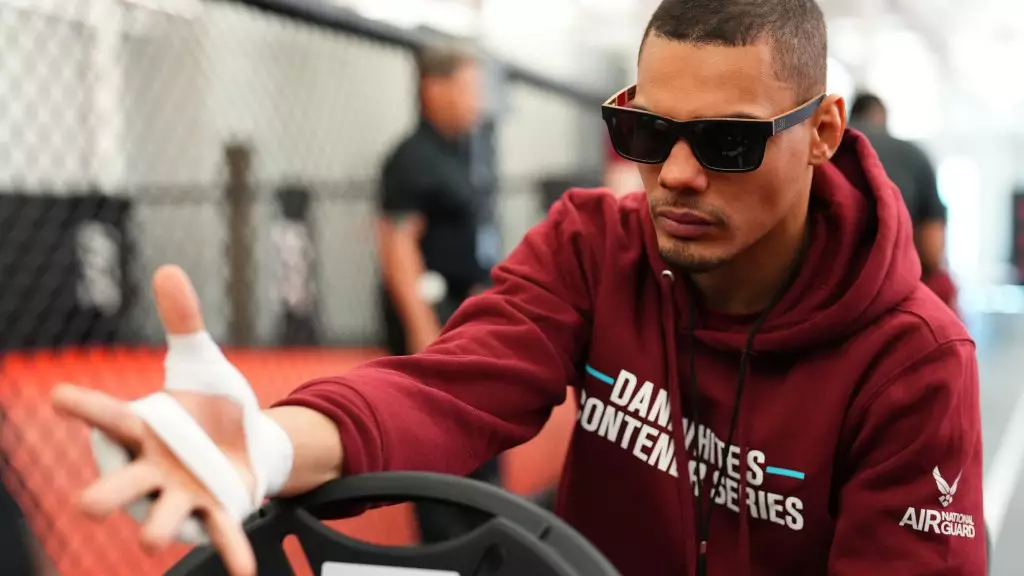The world of mixed martial arts (MMA) is not only a competitive arena, but it is also governed by strict regulations aimed at ensuring fair play and athlete safety. Recently, several fighters from Dana White’s Contender Series faced disciplinary actions from the Nevada Athletic Commission (NAC), drawing attention to the critical intersection of sports and ethics. The implications of these suspensions extend beyond individual fighters, igniting discussions about integrity, mental health, and the evolving landscape of combat sports.
Francesco Mazzeo and Abdellah Er-Ramy, both of whom saw their hopes in the UFC dim after losing their matches, now find themselves on the wrong side of the NAC due to failed drug tests. Mazzeo tested positive for GW1516, a substance prohibited by the World Anti-Doping Agency (WADA), in a specimen collected just days before the bout on September 24. The consequences were significant—a nine-month suspension and hefty fines totaling $904.04. He will be sidelined until June 23, 2025.
Similarly, Er-Ramy was penalized for testing positive for drostanolone, another banned substance, following his fight on October 1. His timeline for return matches that of Mazzeo, underlining the rigorous enforcement of anti-doping standards in this high-stakes sport. These incidents raise critical questions: How prevalent are substance use and testing violations in combat sports? And what does it mean for the fighters involved and the integrity of MMA as a whole?
In a notable divergence from the punishment handed to Mazzeo and Er-Ramy, Quemuel Ottoni’s case highlights a starkly different challenge—the struggle with mental health. Ottoni withdrew from his scheduled bout hours before it was set to begin, citing severe anxiety. While some might question this withdrawal, the NAC has recognized the complexity of mental health issues within sports. Although Ottoni tested positive for Clomiphene, a substance that is once again on WADA’s prohibited list, his temporary suspension was extended as the NAC seeks to engage with him and address his unique circumstances.
This situation underscores an evolving approach in sports governance, where the mental well-being of athletes is finally receiving the attention it deserves. The stigma surrounding mental health in competitive environments has historically been a barrier, but Ottoni’s case may signal a shift toward greater understanding and support for fighters facing psychological challenges.
The recent disciplinary actions serve as a reminder of the ongoing battle against substance abuse in sports, as well as the equally important discussion about mental health. As organizations like the NAC enforce strict regulations, it becomes imperative for MMA to foster an environment that prioritizes wellness alongside competition. Promoting education about the risks associated with performance-enhancing drugs and mental health support mechanisms will be vital in shaping a more holistic approach to athlete care. As the sport grows, so must the framework that supports the fighters who dedicate themselves to this challenging and admirable profession.

